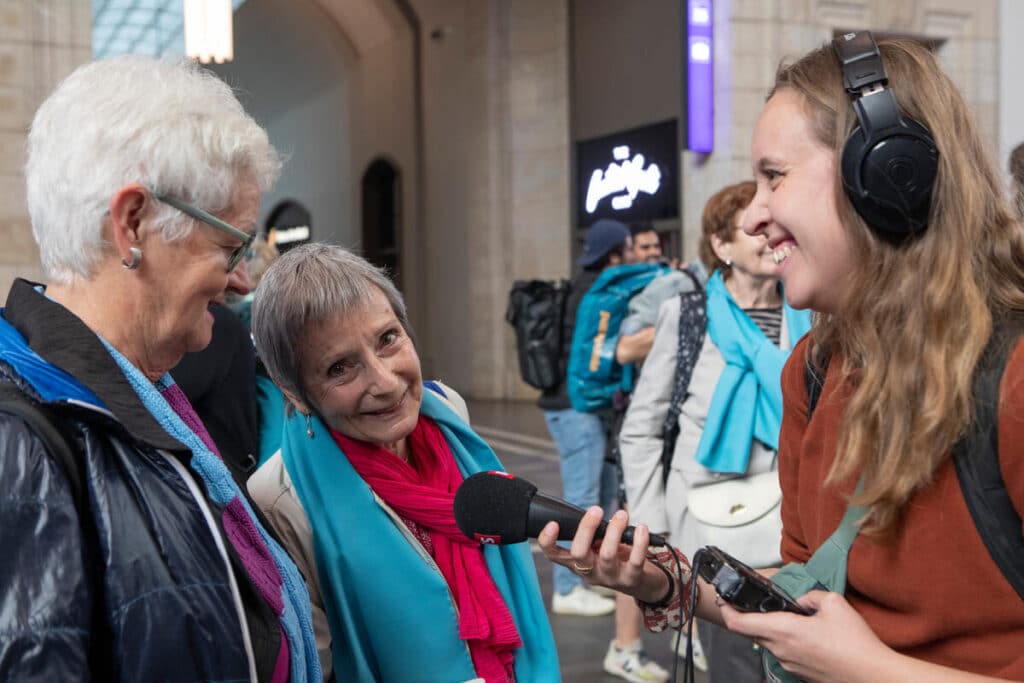Older women face a greater risk of death from heatwaves in Australia and all over the world as a result of global inaction on climate change.
Now, a group of 2500 such women in Switzerland have brought the issue into sharp focus, by fighting and winning a landmark case in Europe that links climate inaction to human rights violation.
The group won their victory overnight in the European Court of Human Rights, which ruled Switzerland had violated the rights of the older Swiss women by failing to deliver a decent strategy for cutting emissions.
This win will have ramifications throughout Europe and the world, inspiring others to take action through the courts and pushing governments to consider their obligations to citizens further.
It also marks a twist in who is pursuing the courts to push countries to act on climate, with younger people typically being the plaintiffs and highlighting the future threat of climate-related disasters to their well-being, survival and future. For these older women, the threat is less about what’s to come in the future and more about what is already here.
The group called KlimaSeniorinnen, or the Climate Seniors Association, launched the proceedings as an “association” to bring thousands of at-risk women together and ensure the court’s outcome wouldn’t depend on any individual person. They first came together in 2016, building friendships and a network over their shared concern for climate change, along with ambitions to do something about it. As one of the members, Elisabeth Stern, recently told SBS, “I love that we are not in a rocking chair knitting.”
As for why the action focused on “older women” — with every member of the group being over the age of 64 — they say it’s because older women are particularly susceptible to the risks of increasingly intense and frequent heat waves. They say they are well aware other people suffer during heatwaves — including older men and young children, but that “by focusing on the proven particularly susceptibility of us older women we are simply enhancing our lawsuit’s success which is ultimately good for everyone.”
Outside the courtroom in France, representatives from the group celebrated with their supporters and each other.
Anne Mahrer, Co-President of the Swiss Senior Women for Climate Protection, said following the ruling that it comes after nine years of fighting for climate justice, with the support of Greenpeace.
“After the Swiss courts refused to hear us, the ECHR has now confirmed that climate protection is a human right,” she said.
“This is a huge victory not only for all the older women, but for access to justice across Europe,” the group said in a press release following the victory.
“Switzerland must now adjust its current climate targets based on science. The Court found that Switzerland had failed to comply with its duties under the Convention concerning climate change. The Swiss authorities had not acted in time and in an appropriate way to implement measures to mitigate the effects of climate change in this case. Furthermore, Switzerland has not achieved its own inadequate targets for reducing greenhouse gas emissions.
The group brought about the first lawsuit on climate change to be heard by the court, asking it to “correct the course of Swiss climate policy because the current climate targets and measures are not sufficient to limit global warming to a safe level.”
Reacting to the Swiss ruling, climate activist Greta Thunberg declared that it is “only the beginning”.
But while there was a victory for the older women, the court ruled two other cases related to climate change were inadmissible, including one from a group of young Portuguese people against 32 countries. The children and young people had claimed that because of their age, climate change-related disasters threatened their right to life and amounted to age discrimination. The court ruled the young people had not fully pursued legal action in Portugal and that they could not bring cases against other countries.
Despite the loss, the young people celebrated the victory gained for older women.
As one 19 year old applicant from the group of Portuguese young people told The Guardian, “Their win is a win for us, too… And a win for everyone.”


